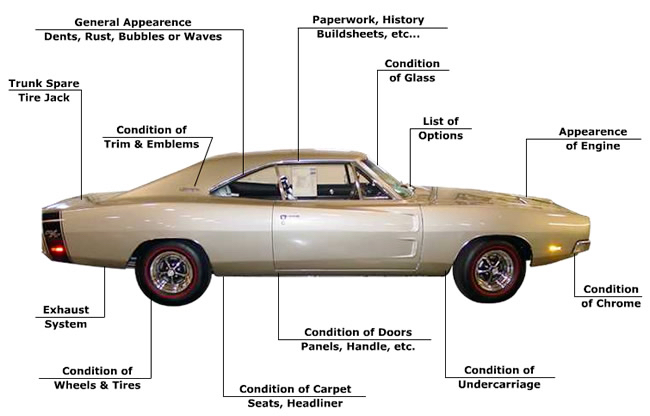Why do I need an appraisal?
People need their classic cars appraised for a wide range of reasons: they want (or have to) sell a car, and need an independent assessment of its value: they want to buy a classic, but have no idea what a fair price is. A vehicle is part of the community property in a divorce settlement and neither partner can agree on what it’s worth; the car is part of an estate and its value has to be established in order to estimate tax liability. The primary reason people have their classic car appraised is for insurance coverage. When it comes to dealing with insurance companies, your appraisal can make thousands of dollars of difference for owners whose classic cars have been damaged or destroyed. It also makes good sense to have your vehicles appraised every several years in order to keep track of a changing market.
Why Professional Standards?
As a professional appraiser I am committed to perform valuation services competently and in a manner that is independent, impartial and objective. Therefore all the analyses, opinions and conclusions in all my reports have been prepared in conformity with the Uniform Standards of Professional Appraisal Practice. This assures confidentiality, record keeping, fee relationship and disclosure of interest for your security. It is our intention at Source One Services that you receive the highest and most professional appraisal for your vehicle.
Why a licensed appraiser?
Most states do not require that automobile appraisers be licensed, but it only makes good sense to hire a licensed professional. Since the primary role of an appraiser is to state a value on personal property, the ability for the appraiser to gather reliable and up to date information is often only available through a professional association such as the I.A.A.A or ASA . The strict standards that are set by these associations insure that its members adhere to the requirements of a complete and through appraisal as well as practicing a strict code of ethics. A licensed appraiser makes a living with his trade; a licensed appraiser demonstrates the commitment for their trade.
When is it ideal to have an appraisal performed?
- Before buying or selling a vehicle
- When securing collateral for a loan
- When assessing the value of an estate
- Before, during and after restoring a vehicle
- Insurance, appraisal clause, arbitration, loan, equity loan, donation, sale, purchase, divorce, business dissolution, taxation, bankruptcy and foreclosure/repossession
Categories we appraise:
- Custom Cars
- Muscle Cars
- Sports Cars
- Antique
- Exotic
- Show Cars
- Race Cars
- Street Rods
Terms
With so many variations of appraisal approaches it can get confusing for someone to feel comfortable asking the appraiser for the right kind of advice. So here are some common terms that are used in the industry. We hope that they will be useful. Remember there are no dumb questions if you’re trying to get the right answer.
Fair Market Value: The Price of which property (vehicle) would change hands between a willing buyer and willing seller, neither being under any compulsion to buy or sell and both having reasonable knowledge of relevant facts.
Market Value: Similar to fair market value except that provision for the lack compulsion to buy or sell is removed and assumption of a sale within a specific time is added, along with the transfer of title.
Actual Cash Value (ACV): An insurance term that usually means the sum of money required at the time of loss, to acquire a similar vehicle, as the property destroyed , less any appropriate depreciation for previous use.
Liquidation Value: An impending sale with limited conditions. An orderly liquidation is planned disposal with price consideration. A forced liquidation is immediate disposal without price consideration. An absolute auction has no reserve price.
Replacement Value: A term used when describing the cost to replace an automobile in the exact or equivalent condition and with the same components, less any depreciation due to use or deterioration. This would include cost of custom fabrication, upgrading and any modification cost to duplicate the appraised automobile.
Salvage Value: Parts value without consideration of the specific vehicle the parts came from.
Hypothetical Value: The value of stolen or damaged vehicles, which are not always available for physical inspection, based on assumed conditions, sometimes contrary to fact, with limiting conditions.
Reconstructive Value: A vehicles value in pre-accident condition is estimated, based on it’s post-accident condition with applicable limiting conditions.
Provenance or Historical Value: External market force affecting a vehicle value because of proven prior ownership or association not necessarily related to intrinsic value.

